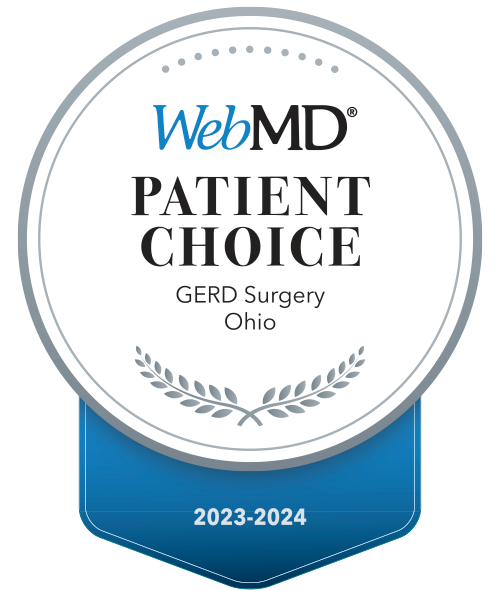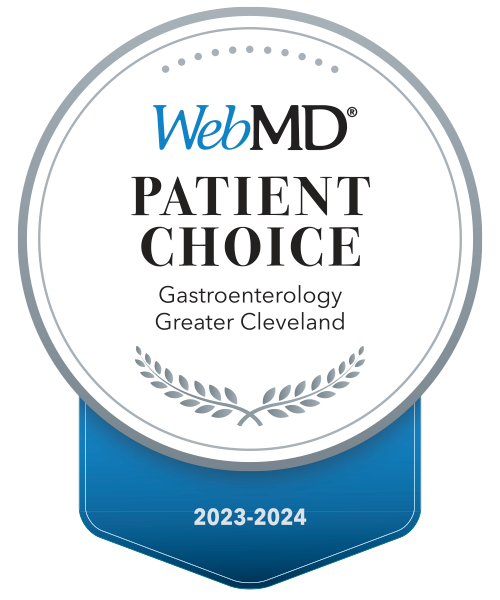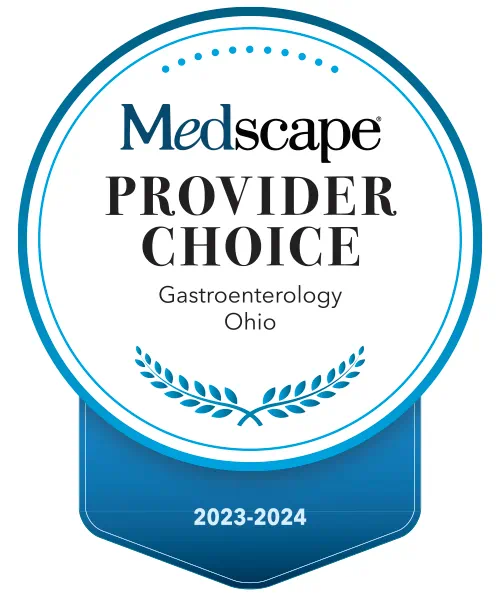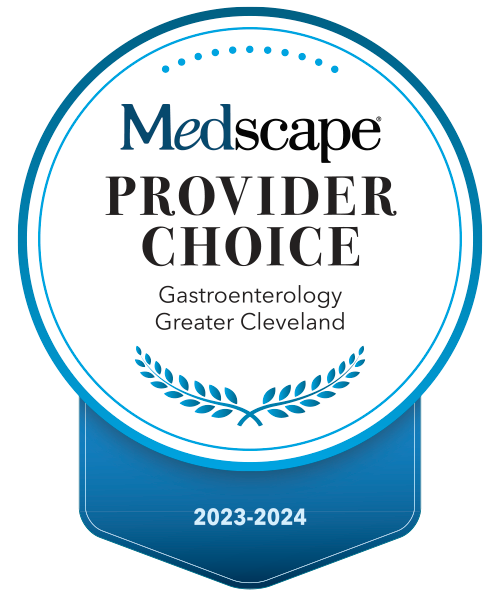Gastroesophageal Reflux Disease
Gastroesophageal reflux disease (GERD) is a severe form of acid reflux that can cause symptoms of persistent heartburn, chest pain and difficulty swallowing. Untreated, it can progress to precancerous changes in the lining of the esophagus - a condition known as Barrett’s Esophagus.
Don’t Ignore Your Symptoms
If you are experiencing persistent heartburn or other symptoms of GERD, don’t delay your care. Call 440-435-3029 today to schedule an appointment with one of our experts.Offering Comprehensive Diagnostics for GERD
Our experienced team of specialists offer innovative diagnostics for all stages of GERD. While gastroesophageal reflux disease symptoms can mimic other diseases, our digestive specialists make sure each patient’s medical plan is complete and accurate for their specific diagnosis. Along with your medical history and physical exam, diagnostic procedures for GERD include:
- ESOCheck: A new and completely noninvasive way to collect esophageal tissue samples for diagnostic testing. For this five-minute office procedure, patients simply swallow a pill-sized capsule that is attached to a thin silicone catheter. Once in the stomach, the physician inflates a special balloon inside of the capsule and then slowly withdraws it. As the balloon moves back up through the esophagus, its textured surface collects cells which can then be tested in the laboratory. ESOCheck provides a safe alternative to endoscopy for patients with risk factors for GERD and other esophageal diseases, including Barrett’s Esophagus.
- Barium swallow with x-ray: For the diagnosis or evaluation of problems in the throat and esophagus, a solution of barium sulfate is swallowed which allows x-rays to identify or track the path of the solution through your digestive tract.
- Esophageal manometry: This test determines if your esophagus can move food through your digestive tract and if your valve, called the esophageal sphincter, is working properly to prevent reflux of gastric acid.
- pH monitoring: A procedure that monitors or measures how much stomach acid is entering the esophagus. A thin tube is placed through the nostril and guided down the throat into the esophagus to measure the pH or acidity through a sensor.
- Upper endoscopy: Also called an esophagogastroduodenoscopy or EGD, this procedure uses a scope to examine the lining of the esophagus, stomach and the small intestine. Using a thin, flexible lighted tube, the physician can examine the tissues and take samples for further testing.
The diagnostic tests for GERD are similar to those for esophageal reflux and these will help your esophagus doctor confirm the extent of your gastroesophageal reflux disease. In addition, with these comprehensive diagnostic tests, our team will be able to check for GERD complications or more advanced disease.
Individualized Treatments for Gastroesophageal Reflux Disease
People who come to University Hospitals have access to a comprehensive GERD treatment options that is right for each individual’s needs, which may include prescription medications or minimally invasive treatment procedures. Combined with adjustments in your diet and lifestyle habits, our specialists may recommend the following treatments:
- Over-the-counter medicines called H2-blockers or protein pump inhibitors.These medications were previously only available through prescription. Today they are available at most pharmacies and supermarkets and are quite affordable. Be sure to take these medications prior to eating to prevent heartburn. In addition, your doctor will monitor your health while taking protein pump blockers to check for any other problems.
- Also, your doctor may prescribe promotility medications, which help empty food from the stomach.
- Sometimes, our specialists recommend a surgical procedure to help keep the esophagus in proper position and prevent reflux. Those procedures include fundoplication, transoral incisionless fundoplication (TIF), and the LINX® Reflux Management System.
Our specially trained digestive health nurses and certified digestive health dietitians work with patients to help them fully understand how to live with GERD. We teach patients how they can make lifestyle and dietary changes to maximize the results of medications or medical treatments.
Talk to a Specialist about Gastroesophageal Reflux Disease
If you have concerns or questions about reflux or how to improve your digestive health, contact one of our team members at a location close to you.
Providing Comprehensive Lifestyle Management for GERD
Seeing a GI specialist as soon as possible is the first step in getting an accurate diagnosis and treatment plan for your digestive health issues. Our team at University Hospitals provides expert care from the first appointment and our patients have convenient access to our specialty providers with many clinic locations across the region.
Once a diagnosis of GERD is confirmed, we encourage patients to review the habits that may have impacted their GERD diagnosis. Even small changes can make a difference and many of the factors are within your control. Examples of the causes of GERD include:
- Being overweight or obese
- Hiatal hernia or bulge of the upper part of your stomach through the diaphragm
- Smoking cigarettes
- Consuming alcohol
- Pregnancy
- Taking certain medications such as antihistamines, calcium channel blockers, pain-relieving medicines, sedatives and antidepressants
Lifestyle changes to control GERD include:
- Limit or stop drinking alcohol
- Dietary modifications
- Stop smoking
- Weight loss
Even the simplest changes can make a dramatic difference in relieving GERD and managing heartburn, the most common symptom.
Robotic Surgery for Anti-Reflux Procedures
In some cases, surgeons at UH Digestive Health Institute utilize robotic surgery technology to treat reflux in patients with GERD. Using the da Vinci robotic surgery system, our surgeons manipulate tiny instruments through small incisions to repair damage to the esophagus. This advanced set of tools offers superior precision and range of motion for the surgeons. Da Vinci robotic surgery offers many advantages over traditional procedures. Patients may experience less pain, less blood loss and a lower risk of complications with robotic surgery. They may also enjoy shorter hospitals stays, quicker recoveries and better outcomes.




University Hospitals has been recognized with 2023-2024 WebMD Choice Awards for excellence in GERD Surgery and Gastroenterology. The award is the only health system recognition program based solely on the preferences of patients and providers at the local and state level.
Make an Appointment
Don’t Ignore Your Symptoms
If you are experiencing persistent heartburn or other symptoms of GERD, don’t delay your care. Call 440-435-3029 today to schedule an appointment with one of our experts.


